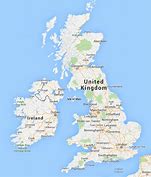By Valerie Routhieaux
Day Six: Self-Editing
Along with research and revision, is editing. From what I’ve heard from almost every writer and author, they aren’t enthused with editing. Editing is the hardest part of the publication process. A lot more goes into it than even I thought possible. When my editor bailed on me when I was getting ready to publish Scarred, I realized I was on my own for editing.
What did I do? Well, the book won’t edit itself. I wish it would, that would be awesome. A friend from another writing site I was with sent me the Harbrace College Handbook. It’s an excellent resource. I bought Revision and Self-Editing. This one I read cover to cover. There’s highlighting and notes in margins. I also bought The Artful Edit. And I have English Grammar for Dummies. Everything I could possibly need, I hoped, in order to edit myself.
When it came to editing Thread of Evidence, I got two editing programs, Grammarly.com and Prowritingaid.com. They are both invaluable. I did pay the premium for prowritingaid.com. It was worth it and cheaper than Grammarly.com.
When editing you need to pay attention to active and passive voice. Was. Were. To be. Are all examples of passive voice. Sometimes you can get away with using them, but those times are the exception and not the rule.
Another thing you need to watch for is your adverbs. Editors and publishers, frown on words ending in ly. Typically, you don’t need it. You can even leave it out of the sentence I wrote and it wouldn’t change the meaning.
Vague words are also frowned on such as very, just, some, and any. There are always ways to work around them, or leave them out, which is best.
I have Grammarly.com turned on in all my posts, so I always know when I got something wrong and can edit it right away instead of waiting to the end. It’s helpful.
With having a publisher for Thread of Evidence, someone else is also editing my work. That can be an advantage or disadvantage depending on how much of your work he or she wants to delete from your manuscript.
As I was going through the edit suggestions from the editor for Thread of Evidence, I needed to decide if it was a valid suggestion and take it out, or invalid and keep it in. I did accept a good portion of her suggestions but also negated some. Especially when she wanted to delete full chapters from the book.
I also found out there are two kinds of edits. The standard edit that I just went through, and the content edit which is more involved. If you’re a writer or author, are there any other tools you use to edit or suggestions about editing?
Tomorrow’s perspective: Grammar




